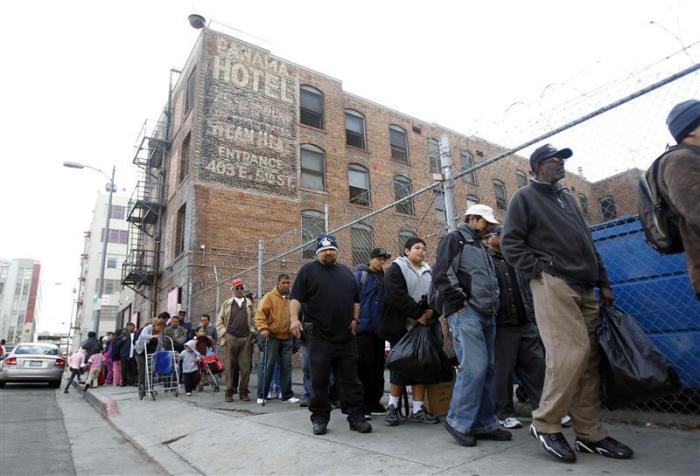What Christians Think About 1 in 10 People Living in Poverty
New US Census Bureau 2014 Poverty Report Shows No Improvement

Poverty in the United States affects about 1 in 10 people despite them living in one of the richest countries in the world, according to the U.S. Census Bureau's 2014 annual poverty report released Wednesday.
According to data from the Income and Poverty in the United States: 2014 report, the nation's official poverty rate in 2014 was 14.8 percent, compared to 14.5 percent in 2013, meaning 46.7 million people were living in poverty last year compared to 45.3 in 2013. The U.S. government defines poverty based on annual household income and takes into account the household size. The median household income in the United States in 2014 fell slightly to $53,657 from $54,462 in 2013. The weighted average poverty threshold per individual during that same year was $12,071; $15,379 for two people; $18,850 for a family of three; and $24,230 for a family of four.
The Christian Post recently spoke with leading Christian non-profit organizations to find out how followers of Jesus Christ are working to eradicate poverty in America.
Ralph McCloud Jr., director of theCatholic Campaign for Human Development(CCHD), said these 2014 poverty statistics are alarming and not acceptable.
"A fifth of our children are growing up poor in one of the richest nations on earth," McCloud recently told The Christian Post. "Our faith calls us to be concerned about poverty. The Gospel and Catholic teaching place our service of the poor and vulnerable and our work for justice at the center of Christian witness."
CCHD distributes national grants to more than 200 organizations nationwide each year through its PovertyUSA.org initiative in a bid to "break the cycle of poverty."
There are many social, political and economic factors to consider in determining what exactly causes poverty. One poverty expert believes the root cause of poverty is broken relationships in four different areas: spiritual, social, emotional and physical.
"If any one of four vital relationships is broken, then some sort of poverty will result: Spiritual: Between the individual and God; Social: Between the individual and other people; Emotional: Between the individual and themselves, and Physical: Between the individual and the environment," said Gary Edmonds, president of Food for the Hungry, who added that "an integrated approach to any sustainable poverty alleviation program is essential" in combating the issue.
FH partners with churches, leaders and families in 26 countries to establish effective short-term and long-term solutions to end world hunger.





























